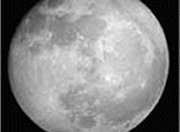Born in 1895, Jiddu Krishnamurti became one of the most prominent representatives of Eastern Thought to the West, after the Theosophy Society, run then by Annie Bessant and CW Leadbeater, ‘discovered’ him living in India during the early part of the 20th century. Identified by Leadbeater as being the new ‘Messiah’, Krishnamurti was instantly accepted into the Theosophy Society and placed in training and preparation for his coming mission under the care of Leadbeater, who was also a suspected paedophile.
After enduring constant manipulation, Krishnamurti eventually renounced not only the training prepared but also all forms of organisation for the progress of enlightenment, leaving the Theosphists in the 1920’s. Embarrassed by his actions, the Theosophy Society merely ignored him, Leadbeater already having jumped various continents to help teach a number of new young boys as to how to become prospective Messiahs.
Krishnamurti then grew in stature to become one of the most important spiritual philosophers of the 20th century, becoming a source of inspiration for innumerous people, spending the last 55 years of his life travelling throughout the world, speaking with people about the fundamental human problem of conflict in the world and the activity and nature of human thought. He died in 1986.
“Man cannot come to [truth] through any organisation, through any creed, through any dogma, priest or ritual, nor through any philosophical knowledge or psychological technique. He has to find it through the mirror of relationship, through the understanding of the contents of his own mind, through observation and not through intellectual analysis or introspective dissection…”
“Truth is a pathless land, and you cannot approach it by any path whatsoever, by any religion, by any sect. Truth, being limitless, unconditioned, unapproachable by any path whatsoever, cannot be organized; nor should any organisation be formed to lead or to coerce people along any particular path.”
These are links that may prove useful for further research:

